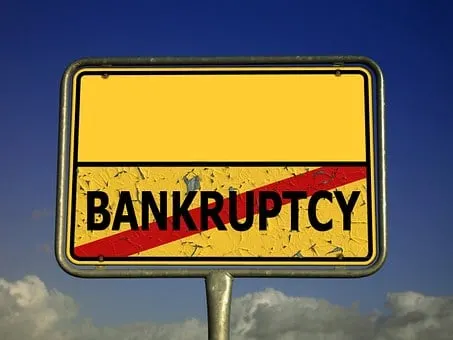Discover the common reasons why people file for bankruptcy, from overwhelming debt and unemployment to medical expenses and business failure. Find relief and a fresh start.
When individuals find themselves grappling with overwhelming financial burdens, the prospect of filing for bankruptcy often arises as a potential solution. Seeking a bankruptcy judgment can provide immediate relief from the weight of debt and offer a fresh start. However, beyond the alleviation of financial strain, bankruptcy can serve as a strategic tool to mitigate various critical circumstances that individuals may encounter. Let’s delve into an expanded list of seven common reasons why people choose to file for bankruptcy.

7 Common Reasons Why People File For Bankruptcy
-
Bank Wants To Foreclose Your Home
If you have defaulted on your mortgage payments, the bank can decide to foreclose your home. And if you have no other way to stop the bank from doing it, you should file for bankruptcy immediately. Once a bankruptcy is filed, creditors are barred from taking over any of your assets. As such, the bank will have no choice but to wait for the court judgment.
When faced with the imminent loss of a home due to foreclosure or the repossession of essential assets such as vehicles, bankruptcy can halt these processes and provide a chance to restructure debts or negotiate new repayment terms. By doing so, individuals can potentially retain their homes and vital possessions, avoiding further financial distress.
-
Too Much Medical Debts
Sometimes, people can get very deep in debt because of health reasons. And eventually, they might find themselves unable to pay off the loan. As such, the only option for these people is to file bankruptcy in court. In fact, a 2009 study suggested that over 60% of bankruptcy claims were made by people who took massive debts because of some critical illness. That is a staggering figure. So, ensure that you have your health insurance in place to avoid such scenarios.
The exorbitant costs associated with medical treatments, procedures, and long-term care can quickly deplete savings and leave individuals overwhelmed with medical debt. Bankruptcy offers a means to alleviate the burden of medical expenses, providing relief and allowing individuals to focus on recovery rather than financial distress.
-
Lender Is Seeking To Repossess Your Car
Just as with a house, your lender can also come to take away your car if you consistently fail to pay the monthly installments. However, once you file for bankruptcy, they will have no right to take the car away from you. And this will provide you some breathing space to arrange for the necessary funds to pay the lender. You can even arrange with the lender in the meantime and set up a new payment plan suited to your current income.
-
You Lost Your Job And Are Unable To Find Similar High Paying Job
If you have been laid off from your job and are unable to find any work that pays a similar salary, then you will be in a tight spot when it comes to repaying the debt. The pressure from the creditors can get so bad that the only way to get some relief would be to file for bankruptcy. While this won’t avoid the inevitable and you will still lose most of your assets to the creditors, at least you can avoid being pressured to pay an amount you have no way of earning anytime soon.
A sudden loss of employment or a significant decrease in income can disrupt an individual’s financial equilibrium. Without sufficient funds to cover living expenses and debt obligations, bankruptcy can provide a means to restructure or eliminate debts and establish a manageable financial foundation during a period of unemployment or reduced income.
-
Eviction Threat From Landlord
If you have been skipping on paying the rent of your home, the landlord can threaten you with eviction. A bankruptcy filing can block out such demands from the landlord. But this will only be for a short period. On the other hand, it will give you some time to borrow enough money to pay the rent and request the landlord to avoid throwing you out of the home. However, if you are being evicted by the landlord for possessing drugs or other such illegal substances, then a bankruptcy won’t work. The landlord will have full right to evict you.
-
You are Transferring To A New State
Different states have different laws when it comes to what part of your assets can be taken over by creditors during bankruptcy. While some states have stricter laws that allow for most of your assets to be taken away, some other states have more liberal laws that will allow you to keep a few of your assets. As such, if you plan on moving to a state which has stricter laws and is currently residing in a state that has liberal laws about asset takeover, then you should immediately file for bankruptcy while you are still living in your current state. This will give you the best possible debt relief since you will be free from any further payment obligation while also protecting at least a part of your assets.
-
Block Out Lawsuits
You can be sued for various damages like car accidents, patent infringement, credit card debt, and so on. By filing for bankruptcy, you can immediately stop these lawsuits. And eventually, the court might declare you bankrupt and discharge any claims raised by these lawsuits. However, do keep in mind that bankruptcy will not be able to stop certain lawsuits like those related to child support, divorce, the collection of taxes, and so on. These lawsuits will still be in effect, and you will be forced to meet their demands or face strict action.
It is important to note that while bankruptcy offers relief and a path to financial recovery, it is a decision that should be carefully considered and pursued with the guidance of a qualified bankruptcy attorney.
